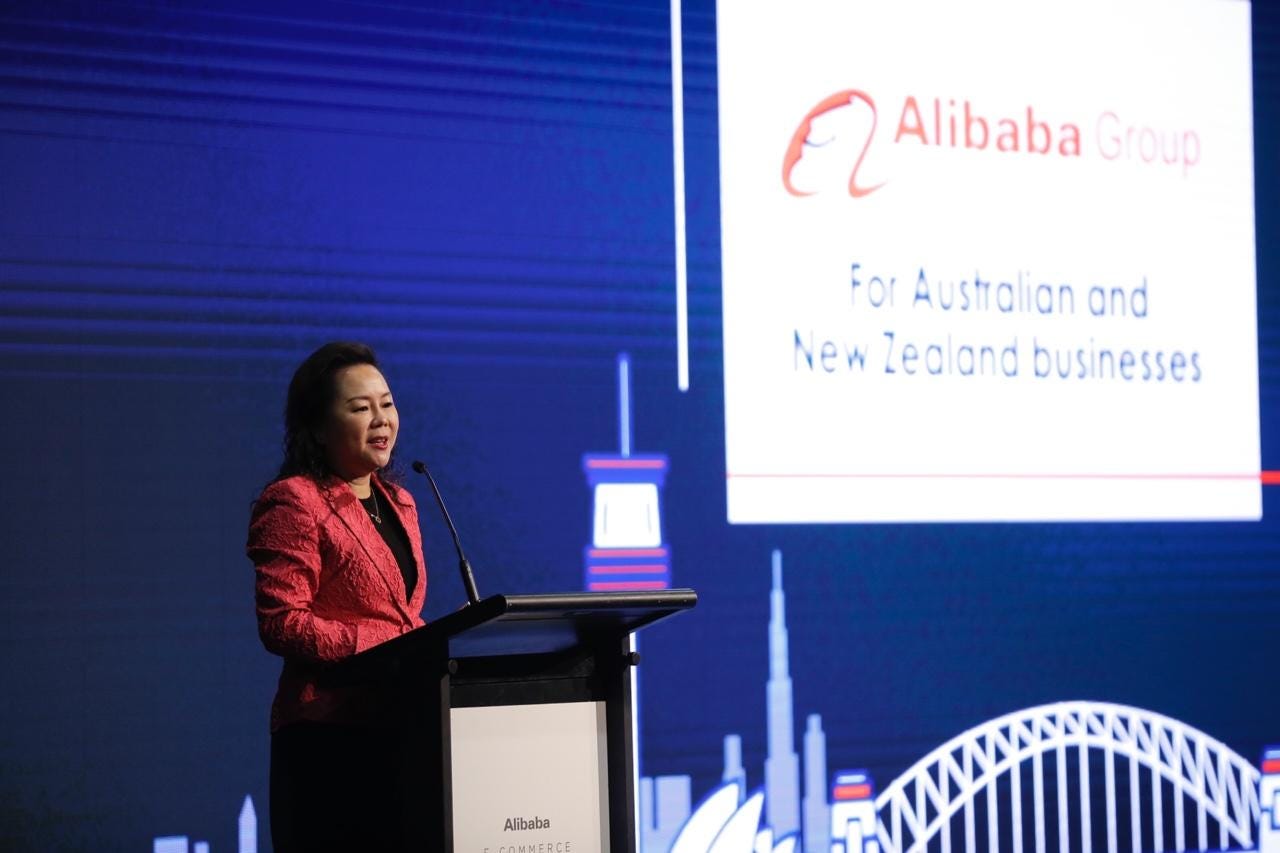China's 11.11 shopping frenzy generates $18 billion in sales in two hours for Alibaba


When Alibaba Group's annual 11.11 Global Shopping Festival kicked off at midnight on Sunday, the company reported total gross merchandise volume (GMV) had generated more than $18 billion in the first two hours and by 2:00pm AEDT, the total GMV had surpassed $25 billion.
The Chinese e-commerce conglomerate also claimed that by the 8-minute mark, orders had peaked at 544,000 orders per second.
The company has predicted more than 500 million users are participating in this year's 24-hour shopping event, dubbed Singles' Day, beating last year's total of 400 million consumers.
According to Alibaba Group Australia and New Zealand managing director Maggie Zhou, the attraction for Chinese consumers to purchase from overseas brands, such as those from Australia, is being driven by a focus on new consumption, new business, and conscious consumerism.
"With the middle class rising in China, it's a really great opportunity for Australian businesses to engage with Chinese consumers. We have a really strong country image of being clean and green, natural, so our products are highly welcomed by Chinese consumers, especially the middle class who seek high-quality products from all over the world – and Australia is one of those markets," Zhou told media on Monday.
Zhou added that an event such as 11.11 is not just an opportunity for brands to sell to the Chinese consumers, but also to help international companies enter the Chinese market.
"We are dedicated to help businesses whether they're big or small to do business easily and anywhere by leveraging the well-established Alibaba ecosystem, as well as the consumer inside-driven product innovations and content-driven user engagement," she said.
She pointed to how Alibaba's T-Mall Innovation Centre is working with brands, such as Australian wine brand Yellowtail, to understand how to better tailor their products for the Chinese consumer.
"Yellowtail in Australia is already working with us to do some product innovation to understand the Chinese consumer, about the wines they like, and how to produce some more suitable products for the Chinese market," Zhou said.
See also: Alibaba releases its first RISC-V CPU as open source solution for 5G and AI (TechRepublic)
This year, Alibaba Group has claimed that over 22,000 overseas brands from 78 different countries and regions are participating in the event, with the amount of new overseas brand growing by 300% year on year.
Last year, Alibaba Group achieved total GMV of $30.8 billion. Australia ranked as the third largest country to sell to China by GMV, behind Japan and United States.
The Australians brands that won the hearts of Chinese consumers last year were Swisse, Devondale, Bio Island, Blackmores, and Healthy Care.
Consequently, purchases for health supplements, adult milk powder, and infant and toddler nutrition from Australian brands ranked as the most popular product categories among Chinese consumers.
Alongside this year's shopping festival, Alibaba Group announced it will convert 75,000 of its locations into permanent recycling stations and offer express pickup for used cardboard boxes and wrapping.
Earlier this month, the company reported strong second-quarter financial results, beating analyst expectations and revealing strong growth in the firm's cloud business.
Alibaba recorded revenue growth of 40% year over year, reaching 119 billion yuan.
Alibaba's cloud computing revenue grew by 64% year over year to 9,291 billion yuan during Q2. The vendor said that demand has been primarily driven by an increase in average revenue per customer, and as of August this year, 59% of all registered companies in China are customers of Alibaba Cloud.
When it comes to Alibaba's active marketplace users, 19 million new users appeared in the 12-month period ending June 30, 2019, bringing Alibaba's annual total up to 693 million. Mobile monthly active users reached 785 million.
Back in September, the company's chairman Jack Ma stepped down from his position after nearly 20 years at the company he co-founded, and was succeeded by CEO Daniel Zhang.
Ma announced his retirement plans last year, saying at the time he wanted to spend more time focusing on education.